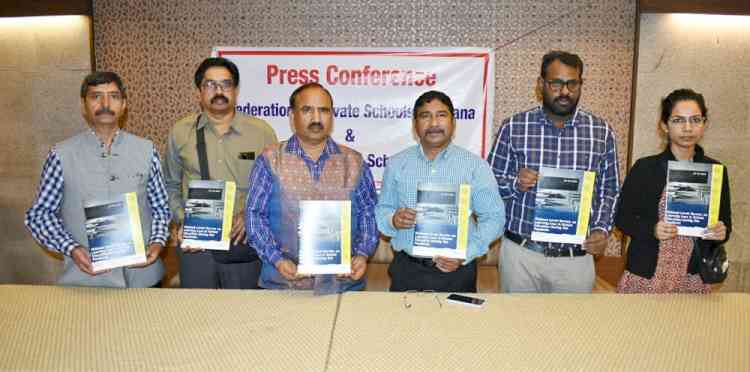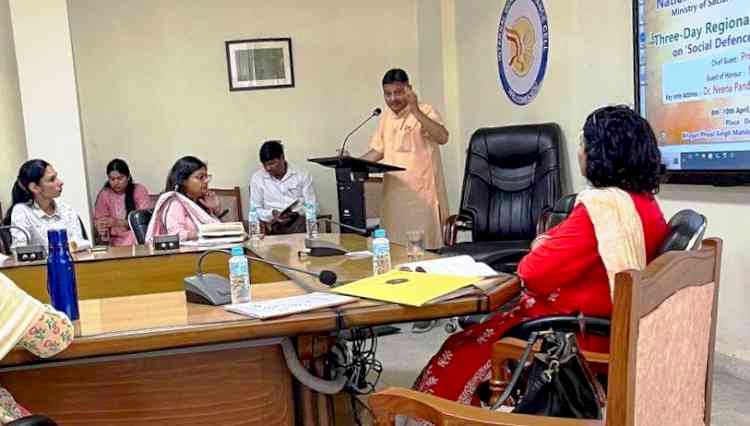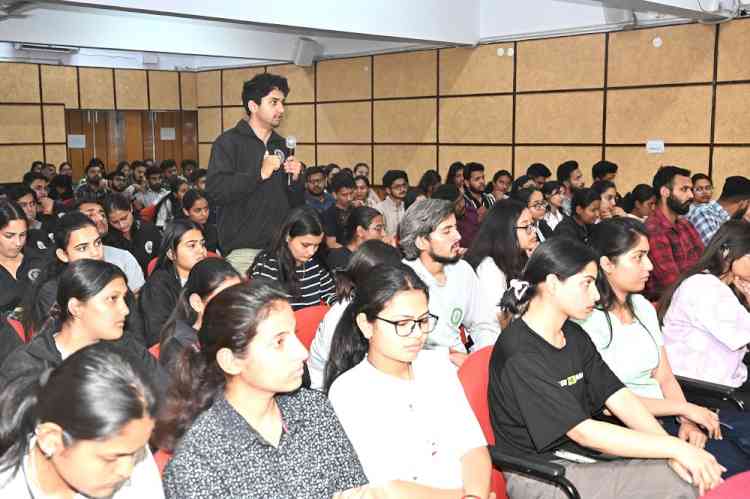NISA Education launched its flagship report - National survey on learning loss in school education during the pandemic

Chandigarh, November 28, 2021: NISA Education launched its flagship report - “National Level survey on Learning Loss in School Education during the Pandemic”. This was revealed at a press conference by National Independent Schools Alliance (NISA) and Federation of Private Schools, held at Hotel Sip & Dine here today.
Kulbhushan Sharma, President, NISA, said, “NISA India has been working for the accessibility and advocacy of quality education since 2010 and we believe in education for all. To take it further, we assessed the learning loss amongst school students of 3rd, 5th and 8th grade during COVID-19 at a national level. The objective of the research was to understand and identify the learning gaps that occurred in the pandemic. Our research report is significant in understanding the learning outcomes and ability of students during an academic elapse.”
The report was released in the presence of Dr Kulbhushan Sharma ( President, NISA and Federation of Haryana Private Schools Association), Madhusudan Sadula (Vice President, Advocacy NISA and TRSMA Telangana), Tulasi Vishnu Prasad (Vice President, Quality NISA and APUSMA Andhra Pradesh) and Prem Chand Deshwal (President, PLPS Delhi), Thomas Antony (National Coordinator NISA) and Ms Nandita Singh (Research Associate NISA).
The survey was conducted with 1502 students in urban/ semi- urban/ rural / schools across 17 states, including Assam, Telangana, Chandigarh, Haryana, Delhi, Himachal Pradesh, Andhra Pradesh, Goa, Punjab, Uttarakhand, Tamil Nadu, Maharashtra, Uttar Pradesh, Rajasthan, Madhya Pradesh, Jammu & Kashmir and Gujarat. Diagnostic tests were done for the students and teachers to assess their foundational abilities, which included their understanding, reading and written skills of mother tongue, English and mathematics. It was followed by a common web questionnaire.
The objective of the report was to understand and identify the learning gaps which occurred during the pandemic and how can it be bridged so as to overcome months of academic slide. School closure due to COVID-19 has led to complete disconnect from education for the vast majority of children or inadequate alternatives like community-based classes or poor alternatives in the form of online education, including mobile phone-based learning. This report explicitly showed how there is a great digital divide in schools from the rural parts of India: 4% of 61% respondents have used other non-interactive platforms like YouTube, Doordarshan, T-SAT etc. The remaining 12% of 181 have not joined online classes during the pandemic due to lack of internet and 98.6% of the respondents preferred offline classes.
On the front of stress, it was quite evident as 42.3% of the total respondents reported that they went through stress, tension and anxiety. Some of the key findings would be of great assistance to the pedagogy of a classroom in suggesting measures to bridge this gap of learning like 85% of students are conscious and aware of their present skill levels in languages and Maths. Mother tongue challenges in reading are observed in all the urban zones. The difficulty level is higher in respondents in writing (mother tongue) compared to reading across all the grades and zones. Surprisingly, difficulty level in reading skills (English) in urban schools are found to be higher at an aggregate of 30% across all the zones with Grade-3 and Grade-5 are reporting major challenges compared to Grade-8.
Major Writing and Understanding (English) are seen across all the zones and in all the classes except International Schools. Grade-3 students have major challenges in Mathematics with 44% falling below one-class level (36%) and two-class level (8%). Math data analysis presents a big concern. The data points severe Mathematical challenges are seen across the Grades in all the Zones. One-in-Three Students are struggling with Math, wherein students fall in either ‘below One-Class level’ or ‘below two-class level’. This key understanding is an eye-opener for all the Educators, Schools, Department of Education and the Governments at Centre and States
The education crisis that has afflicted almost 250 million children in India as a result of school closures enacted in response to the COVID19 outbreak. It emphasizes that the shift to online learning has resulted in a "regression in learning" that has disproportionately impacted the poor, revealing a growing reliance on private tutoring and a lack of easy access to smartphones. There is need to reform teaching now that we are back to learning in classrooms, remedial classes and innovative curriculum can shape new pedagogy in schools.


 cityairnews
cityairnews 








